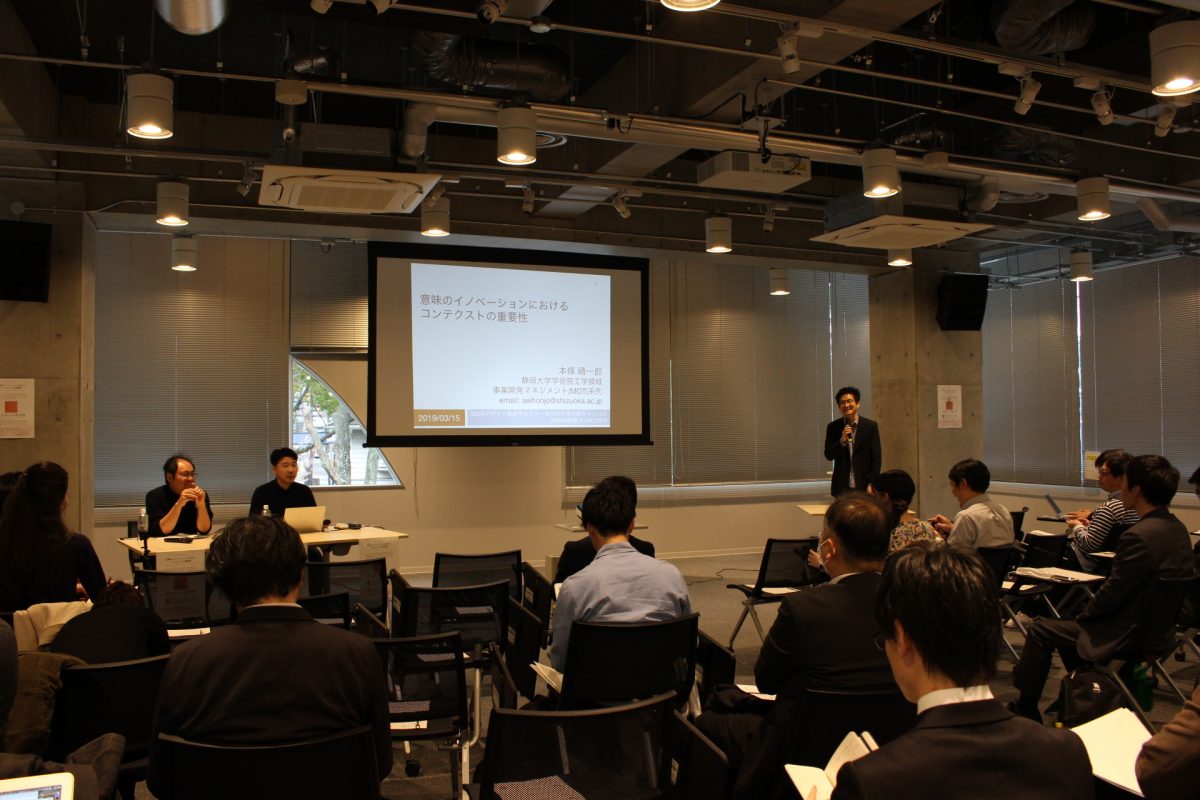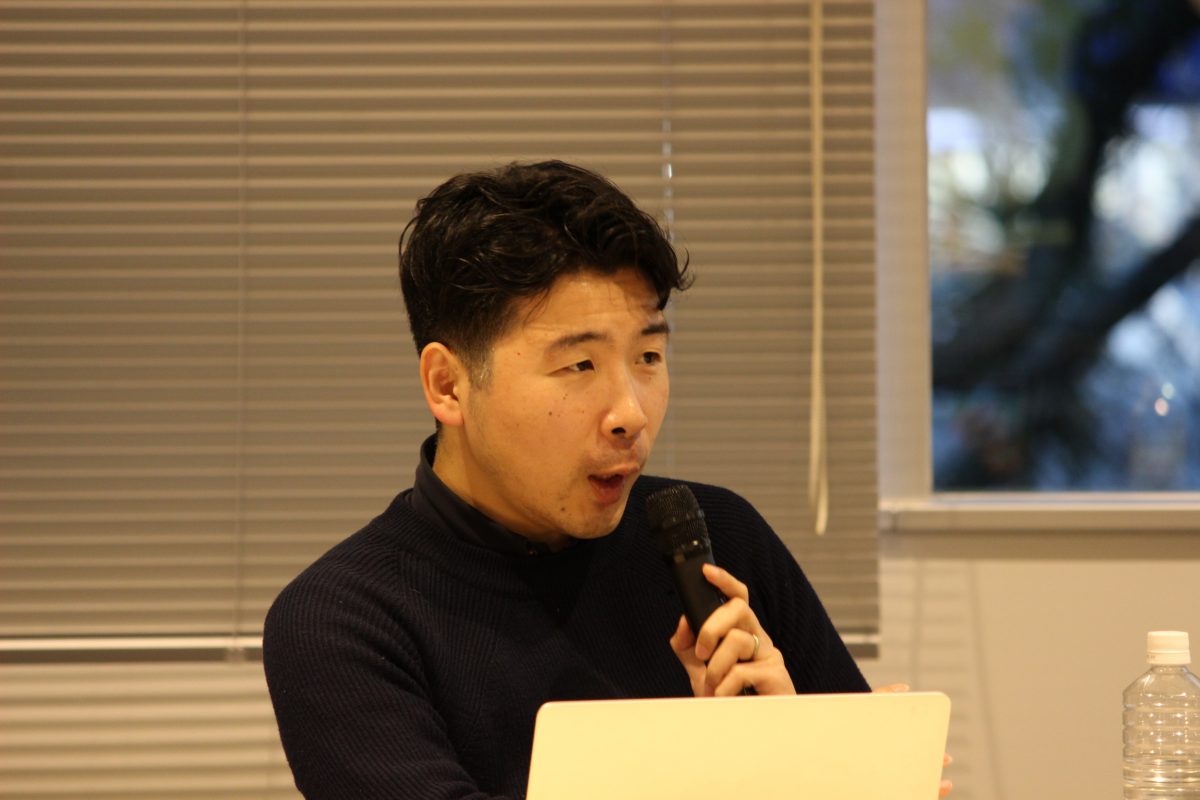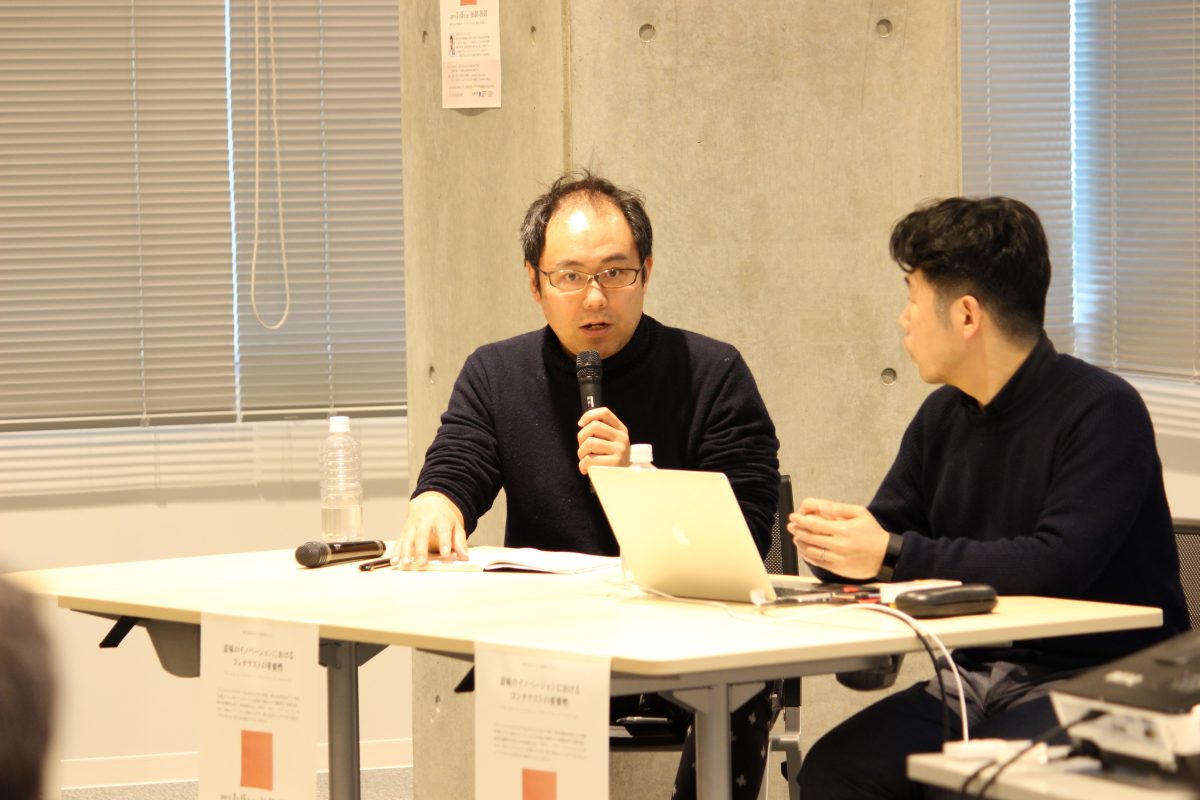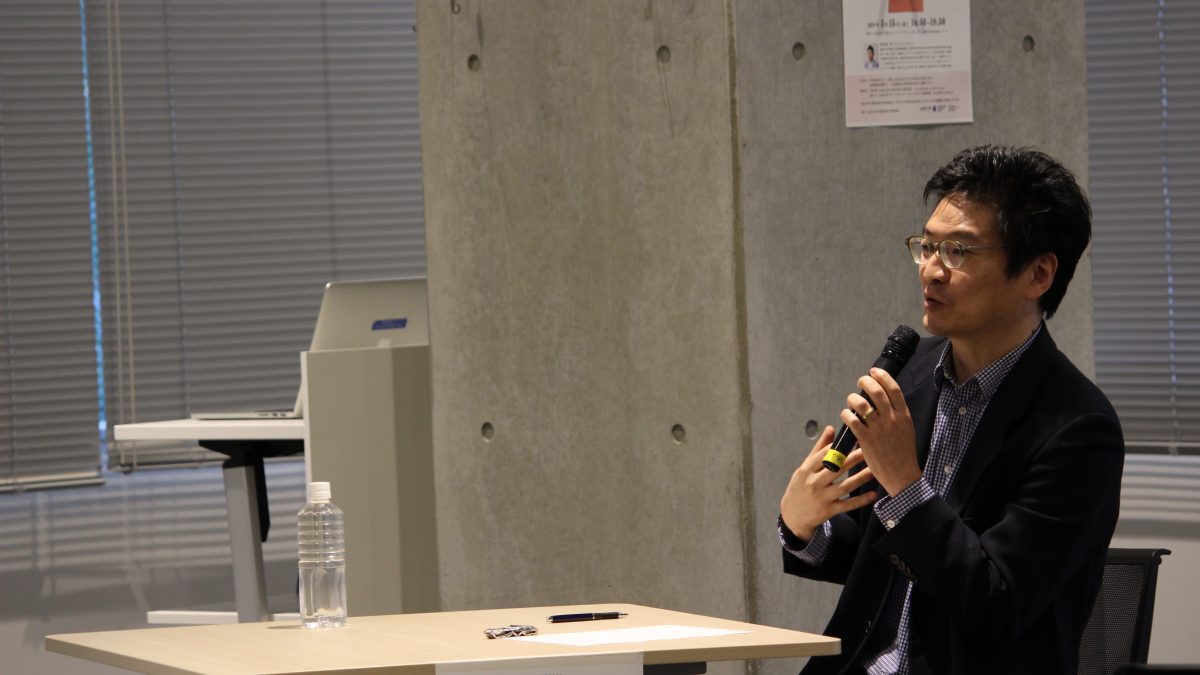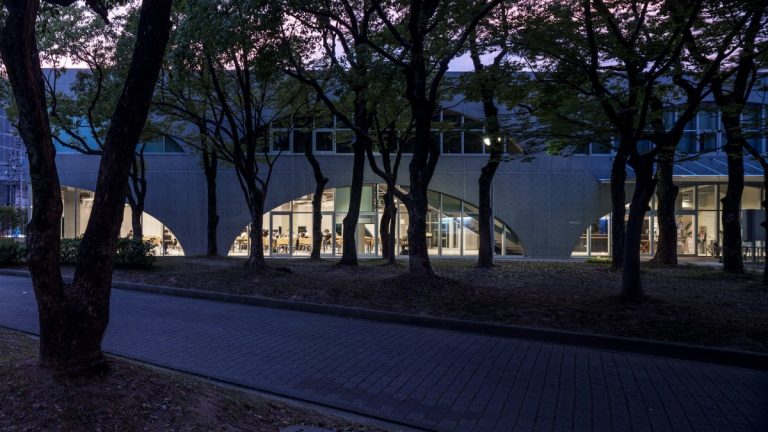6th Study of Design Fundamentals Seminar “The Role of Context in Innovation of Meaning”
March 15th, 2019, Friday
The Faculty of Design at Kyushu University explores the foundations of design with the aim of systematizing the field of design.
We welcomed Associate Professor Seiichiro Honjo from the Faculty of Engineering at Shizuoka University to give a talk with Visiting Professor Hiroshi Tamura of Kyushu University Global Innovation Center on the subject of “the importance of context in the innovation of meaning.” About 30 participants had attended the event. The proceedings of that day are summarized below by Professor Toru Koga from Kyushu University Faculty of Design.
Harassment can be understood as the “compulsion of context.” For instance, depending on the circumstances in which the following words “you are an idiot” have been uttered—i.e. depending on the context of these words—they can be construed either as words of insult, an expression of friendship, or words of praise for someone’s courage. If the person dislikes being called an “idiot,” but you nevertheless insist that it was used in the context of friendship, or that you were merely messing around, or you had his interest in mind when uttering those words, then it would become an imposition of context. Harassment refers to depriving the other party of the right to determine the context and forcing him to operate within the context that you have set.
Concerning this, Dr Honjo suggests that design has the potential to promote means of avoiding harassment because design is the act of actively creating new meaning in unexpected contexts. Design guarantees the right to determine context for both the speaker and others and advances that very right. Dr Honjo describes this by borrowing the word “criticism” as used by Roberto Verganti of the Polytechnic University of Milan. Aligning this idea of “criticism” with a text implies re-evaluating the text from fresh perspectives in a way that would create innovative meanings for it. Indeed, design is this process by which new meaning is continuously created.
Dr Honjo notes that in colonialism, the colonizing state imposes its cultural context onto the colonial subjects under its rule, whose messages are always interpreted through the colonizing state’s cultural code. If this qualifies as act of imposing one’s value onto another, Dr Honjo suggests that design can be construed as part of the process of decolonization. Through this process, the ruled subjects begin to desperately defend their right to determine the context based on their physical responses or “emotions” that have been elicited.
Dr Honjo uses Gandhi’s word “cowardice” to describe how the fear of having one’s work or statement freely interpreted by others results in one’s enforcement of the context beforehand. Accordingly, the readiness to accept a new meaning and respond to it could be called “courage.”
Design thus bears a relationship to promoting this “courage” and is the fertile ground upon which the various possibilities of contextualization can flourish. To create an idea that goes against the majority and share it with the few people who can be trusted, thereby consolidating one’s context—that is “courage.” To then subsequently, expose that idea to the eyes of others, and accept whatever new meanings that may arise from that encounter to test and improve that idea—that is also courage. Design culture is believed to be precisely the ground for these possibilities.
Speaker
Seiichiro Honjo
Dr Honjo is Associate Professor at the Faculty of Engineering, Shizuoka University, and he holds a PhD from the Department of Multidisciplinary Sciences at the University of Tokyo’s Graduate School of Arts and Sciences. His research focuses on creativity and context from a bottom-up perspective. After having researched in the field of mathematical sciences studying the auditory system, Dr Honjo’s research interest turned to decolonization and, more recently, business administration. His publications include his dissertation “The Diversity of Management: Crowdsourcing at Muji” in Japan Marketing Journal (co-author, 2011), “Theory of Harassment” by Toyo Bunka (2009), etc. He has received awards from academic societies in both the fields of mathematical sciences and business administration.
Hiroshi Tamura
Joint representative of Re:public Inc.
Co-founder and an executive fellow of Tokyo University’s i.school. Holds the additional posts of visiting professor at Kyushu University and the Japan Advanced Institute of Science and Technology. Known as a pioneer of design thinking, he currently designs and manages a variety of open innovation projects which connect industry, academics, the public, and the private sector domestically and overseas, and searches for new “innovation ecosystems.” He co-authored the book “Todai Shiki Sekai Wo Kaeru Inobeshon No Tsukurikata” (Hayakawa Shoten).
Organizer
Kyushu University, Faculty of Design
Date
March 15th, 2019 (Friday): 4:30 p.m.-6:30 p.m.
Venue
Kyushu University Ohashi Campus Design Commons 2F
Shiobaru 4-9-1, Minami-ku, Fukuoka
Contact
Toru Koga (Kyushu University Faculty of Design)
toru(a)design.kyushu-u.ac.jp
Member
- Seiichiro Honjo Shizuoka University College of Engineering
- Toru Koga aculty of Design, Kyushu University
![九州大学イノベーションデザインネクスト[KID NEXT]](https://www.kidnext.design.kyushu-u.ac.jp/wp-content/themes/kidnext/img/logo_header.png)
